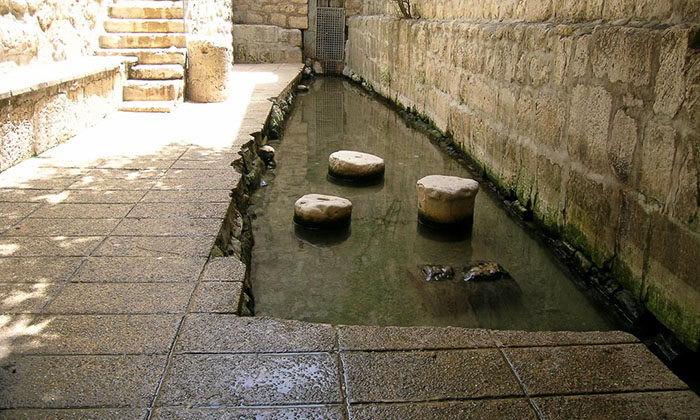
In 2004, the stepped remains of the ancient Siloam Pool were uncovered near the City of David. According to the Gospel of John, it was at this sacred Christian site that Jesus healed the blind man. Photo: BiblePlaces.com.
The ancient Pool of Siloam, located in the City of David National Park in Jerusalem, will soon be fully excavated and opened to the public for the first time in modern history.
The Pool of Siloam was built in the First Temple period around 2,700 years ago, during the reign of King Hezekiah, as a major part of the water system for the ancient city of Jerusalem.
It is believed that the pool also was used as a ritual bath (mikveh) by millions of pilgrims who converged at the Pool of Siloam before ascending through the City of David to the Temple.
The pool is mentioned in the Gospels as the place where Jesus healed a man born blind. It remained in use until the Byzantine period, around the sixth century CE.
The Israel Antiquities Authority began excavating and restoring the Pool of Siloam in 2004. The team faced several challenges, including the need to carefully preserve the ancient structure and artifacts as well as the logistical difficulties of working in a densely populated urban area.
Hezekiah’s Tunnel, a water tunnel built in the eighth century BCE, leads to the pool. In 1880, the Siloam Inscription was uncovered in the water tunnel, just a few dozen meters from the pool. Currently located at the Istanbul Archaeology Museum, the inscription in ancient Hebrew script records how the Gihon Spring’s water was diverted to the Pool of Siloam during the reign of King Hezekiah.
When the site is first introduced to the public, visitors will be able to observe the excavations, and in the coming months the Pool of Siloam will be opened for tourist access as part of a route that will begin at the southernmost point of the City of David and culminate at the footsteps of the Western Wall.
“I think it’s going to be a marvelous site and a major attraction in the tourism of Jerusalem,” said Amit Re’em, Jerusalem regional archeologist. “It’s a great achievement. We, the archeologists, have been waiting for it for a long time and are very excited.”

